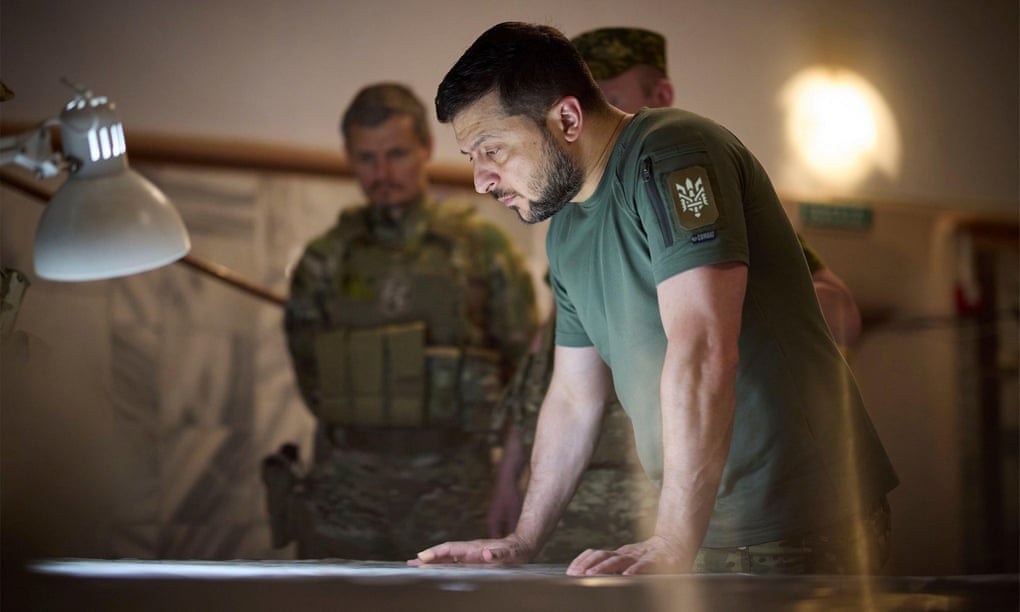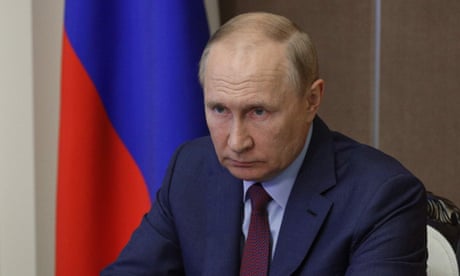John Simpson

There was a brief time, lasting from the fall of the Berlin Wall in November 1989 to Saddam Hussein’s invasion of Kuwait in August 1990, when even quite sensible people wondered whether major wars might become a thing of the past. This proved to be ludicrously wrong, of course. Since the late 1990s our age has been largely defined by war, beginning with Chechnya and the former Yugoslavia and intensifying with 9/11 and the decision to overthrow Saddam Hussein. Now, after Vladimir Putin’s wholly unprovoked attack on Ukraine, we’re experiencing the scary feeling that nuclear war might be a real possibility, once again. And the Ukraine war is forcing us to ask the old, old question: whose finger is really on the trigger? Are the politicians or the generals in charge? The dictators or the duly elected representatives? The presidents and prime ministers or the people in uniform?
Prof Sir Lawrence Freedman is the dominant academic authority in Britain and the English-speaking world on the way modern wars have been fought. Rational, liberal-minded, clear-sighted, he has drawn on a lifetime of experience for his new book. It was, he accepts, a lockdown exercise. A purist might say some of the material could have been differently organised, with a clearer separation of the material by region, for example. But it is the quality of the narrative and the sheer intelligence of the judgment that count, given the subject’s vast sweep. Command takes in not simply the major wars – Korea, Vietnam, the Gulf and Afghanistan – but also France’s colonial wars in Indo-China and Algeria, the near-war created by the Cuban missile crisis, Pakistan’s hapless attempt to keep hold of Bangladesh, Israel’s disastrous invasion of Lebanon in 1982, the Falklands, and Laurent Kabila’s vicious campaign in the Congo: an often shameful yet always illuminating parade of hardware, human inadequacy and death.
Democracies really do fight wars more effectively, and dictators really do make rotten strategists
It is, of course, too much to hope that any simple lessons can be drawn from all this. Some political leaders tell the generals what to do, sometimes it’s the other way round. Freedman summons up an extraordinary range of post-1945 commanders, from MacArthur to Giáp, Cogny and Challe, right through to Mike Jackson in Kosovo, Stormin’ Norman Schwarzkopf in Iraq and two of America’s most admirable but doomed generals, David Petraeus in Baghdad and Stan McChrystal in Kabul. Yet some basic principles apply: democracies really do fight wars more effectively, and dictators really do make rotten strategists, from Saddam Hussein to Vladimir Putin, who interferes even in the kind of decisions an army lieutenant ought to take.
Reporters – I’m thinking particularly of long-serving people such as Jeremy Bowen of the BBC, Richard Engel of NBC, or John Burns of the New York Times, but there are plenty more of us – have seen this succession of wars from a very different viewpoint: we stare up into the sky at the bombers and missiles targeting the enemy cities where we are cowering, knowing nothing of the strategy that has sent them there. Just occasionally our view can be clearer than that of the commanders in their headquarters; for instance during President Clinton’s and Tony Blair’s maladroit bombing of Belgrade in 1999, when the White House and Downing Street became increasingly panicky in their claims that Serbia’s resistance was collapsing when it was clear to us that it wasn’t. Freedman’s view is never simply that of the headquarters, though, and he takes a savage pleasure in untangling the infighting among the staff and the soldiers on the ground. His account of the wars against Hussein and the Taliban is masterly: perhaps the best I’ve read. Battlefield reporting is important, because people back home need to know what is being done in their name. But there’s no question that what really counts in the long run is Freedman’s perspective, examining the decision-making and the interplay between governments and military commanders.

Lawrence Freedman: ‘Autocracies tend to make catastrophic decisions. That’s the case with Putin’
Do certain basic threads link all the different wars since Korea? Just one or two: American short-termism, for instance. Every major enemy the US has come up against knows that Washington’s attention span is brief, and that the one hope of success lies in clinging on, despite the overwhelming firepower. Since Korea, the US has failed to emerge as the undisputed winner in any of the major wars it has fought, from Vietnam to Afghanistan. That this hasn’t damaged its standing as the world’s pre-eminent power is a tribute to America’s enormous economic and cultural strength. It’s also a sign that none of these conflicts has been as existentially important as Washington originally said they were.
In order to persuade public opinion to back a war, a US president must hype its significance grossly; think of Lyndon Johnson on Vietnam, a very middling local post-colonial conflict. (Blair did the same with Hussein’s WMDs and the supposed 45-minute strike time against British targets.) Soon the big US corporations muscle in, sniffing indecently large profits, and the Department of Defense proceeds to pour out immense and often unnecessary resources. Finally the cost incurred, plus the grotesque damage done to local civilian life, starts to tip the balance, and Americans themselves begin questioning the war’s purpose. After that, it’s just a question of how fast to get out.
Command is the history of our time, told through war. It’s a wonderful, idiosyncratic feat of storytelling as well as an essential account of how the modern world’s wars have been fought, written by someone whose grasp of complex detail is as strong and effective as the clarity of his style. I shall read it again and again.
No comments:
Post a Comment